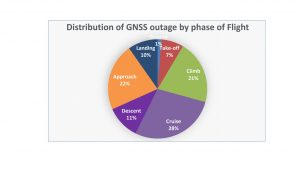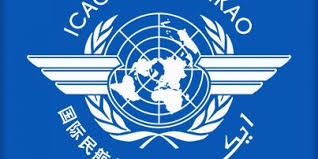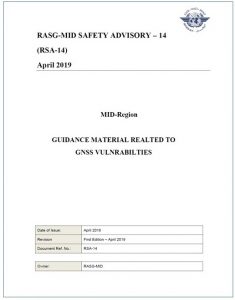The International Civil Aviation Organization (ICAO) is the international group where nations come together to make global civil aviation safer and more efficient.
Recently it recognized long-standing problems with GNSS disruption in the Middle East by issuing a safety advisory and suggesting ways nations and aviation interests could mitigate hazards.
A couple interesting items from the document that reaffirm the importance of uninterrupted GNSS and the hazards of disruption (emphasis added):
“Dependence on GNSS is increasing as GNSS is used for an ever-expanding range of safety, security, business and policy critical applications. GNSS functionality is being embedded into many parts of critical infrastructures. Aviation is now dependent on uninterrupted access to GNSS positioning, navigation and timing (PNT) services.”
“Aviation relies heavily on GNSS for area navigation and precision approach. Aircraft avionics such as the Flight Management Systems (FMS) require GNSS timing for a large number of onboard functions including Terrain Avoidance Warning System (TAWS) or Enhanced Ground Proximity Warning Systems (EGPWS). Onboard avionics are highly integrated on commercial aircraft and are very dependent on GNSS timing data. At the same time, GNSS vulnerabilities are being exposed and threats to denial of GNSS services are increasing.”
“GNSS is the foundation of Performance Based Navigation (PBN), automatic dependent surveillance – broadcast (ADS-B) and automatic dependent surveillance – contract (ADS-C). GNSS also provides a common time reference used to synchronize systems, avionics, communication networks and operations, and supports a wide range of non-aviation applications.”

Click on image to access advisory.



